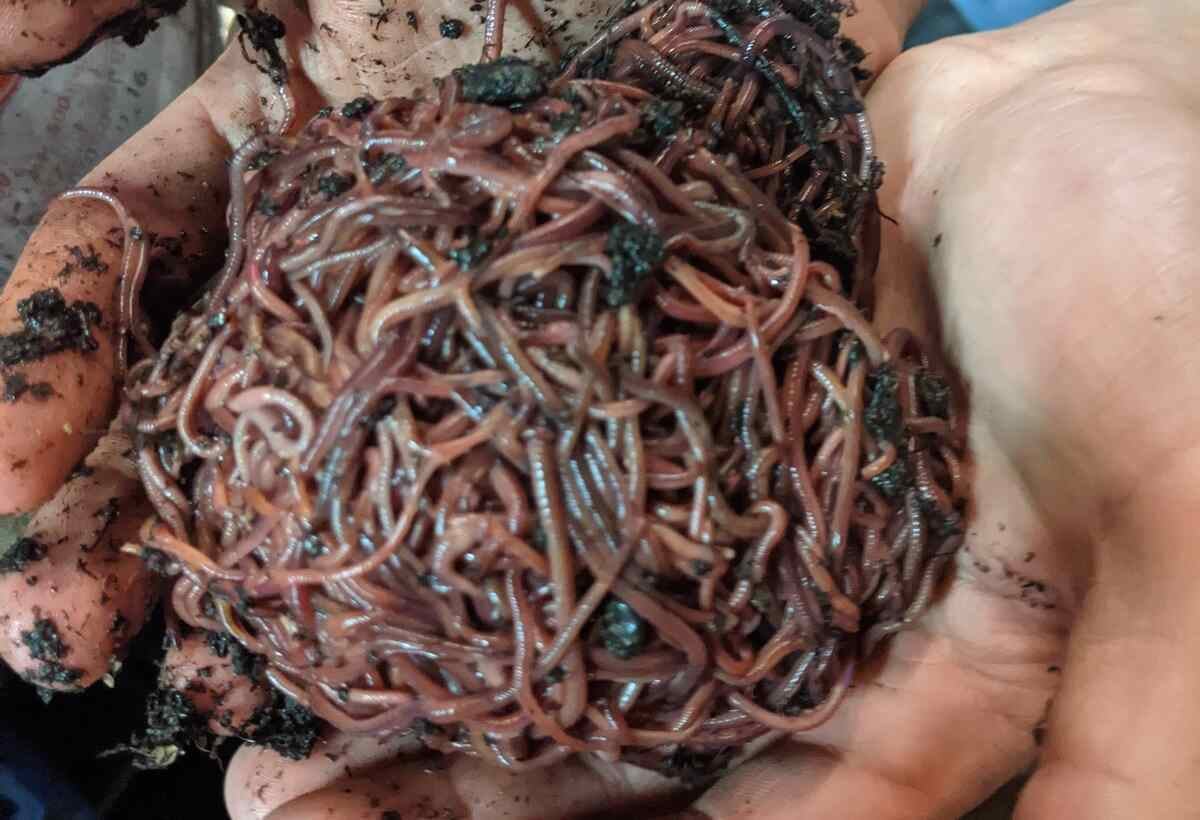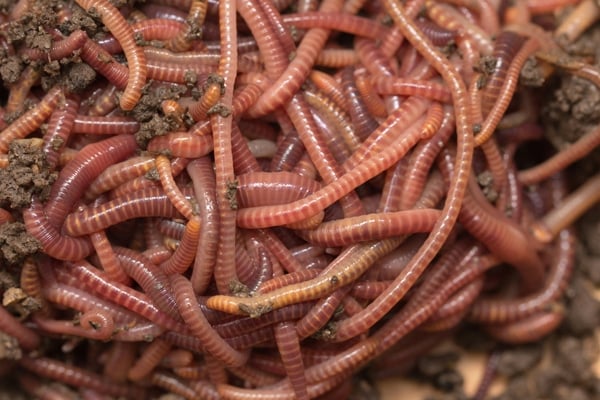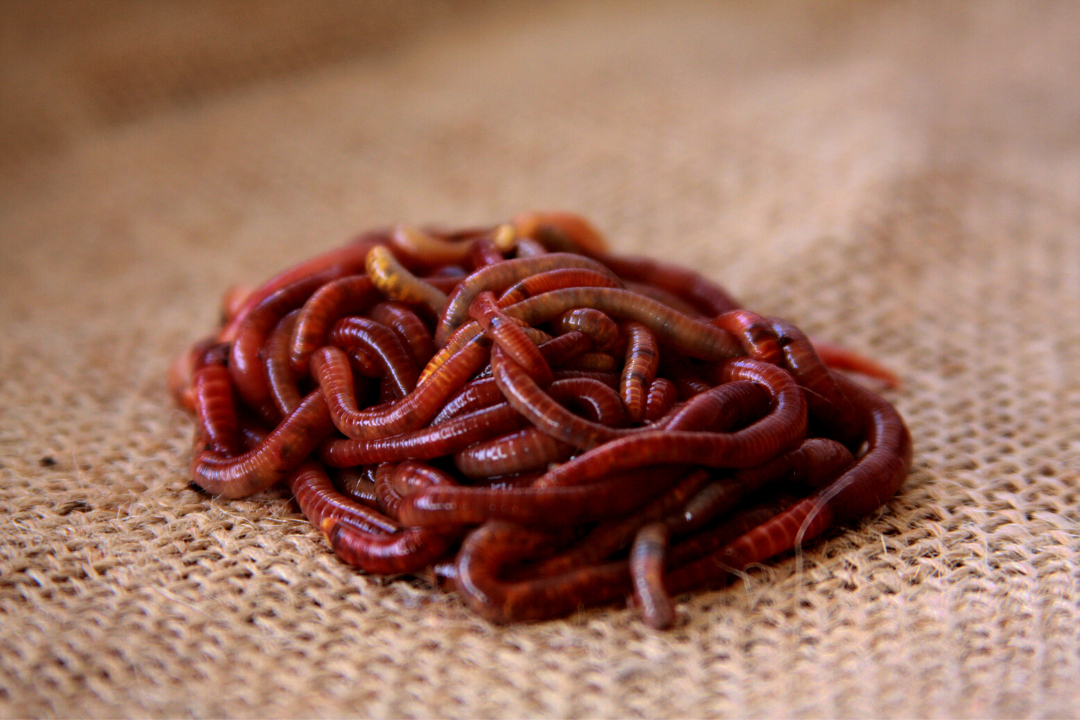Stock Up on Supplies with Lake Hickory Bait for Your Next Trip
Stock Up on Supplies with Lake Hickory Bait for Your Next Trip
Blog Article
Open the Keys of Red Wigglers: Your Guide to Composting Success
The combination of red wigglers right into composting practices provides a substantial chance for enhancing soil health and advertising sustainability. Understanding their demands and actions is crucial for enhancing their possibility, from setting up a proper worm container to feeding them the appropriate products.

What Are Red Wigglers?
(Red Wiggler Express)Red wigglers, medically understood as Eisenia fetida, are a types of earthworm largely used in composting due to their amazing capacity to disintegrate natural matter successfully. These worms are identified by their reddish-brown coloration and a fractional body, commonly gauging in between 3 to 4 inches in size. Unlike other earthworm species, red wigglers thrive in abundant, organic environments, making them excellent for vermicomposting systems.
Native to The United States And copyright, they are usually discovered in decaying leaves and compost heap, where they play a crucial role in nutrient recycling. Their adaptation to living in a wet, cardiovascular environment enables them to consume big quantities of organic waste, simplifying into nutrient-rich castings that improve dirt health.
Red wigglers replicate quickly, with a single worm qualified of creating numerous cocoons each week, each including numerous hatchlings. Recognizing the biology and actions of red wigglers is vital for optimizing their capacity in composting applications.
Advantages of Making Use Of Red Wigglers
Using the power of red wigglers in composting offers numerous advantages that enhance dirt wellness and promote lasting waste administration. These exceptional microorganisms efficiently damage down natural issue, transforming kitchen scraps and yard waste into nutrient-rich vermicompost. This ended up item is incredibly useful for plant growth, as it boosts dirt structure, enhances moisture retention, and boosts vitamins and mineral schedule.

(Red Wiggler Express)Furthermore, the presence of red wigglers in your composting system can speed up the composting procedure, creating high-quality compost in a portion of the time compared to conventional methods. The spreadings created by these worms are additionally including useful microorganisms that even more enhance the soil community.
Establishing Your Worm Bin
Creating a reliable worm container is a simple procedure that can considerably boost your composting initiatives. Worm containers can be made from plastic storage containers, wooden boxes, or commercially available worm containers.
Next, prepare the bed linens material, which serves as the worms' environment. A mix of shredded paper, cardboard, and coconut coir functions well, providing a comfy atmosphere for the worms.

Feeding Your Red Wigglers
To make certain the health and wellness and performance of your red wigglers, it is important to provide them with a balanced diet regimen that fulfills their dietary demands. Red wigglers flourish on a diverse array of organic products, which not just provide needed nutrients yet additionally advertise efficient composting.
Start pop over here by including kitchen area scraps such as vegetable peels, fruit cores, and coffee grounds. Avoid citrus fruits, onions, and garlic, as these can be damaging to worm health. Furthermore, introduce shredded paper, cardboard, and dry leaves to create a well-aerated setting.
Feeding regularity should be kept an eye on; usually, worms can consume half their body weight in food weekly. It is essential to avoid overfeeding, as excess food can cause undesirable odors and draw in parasites. An excellent technique is to include food in little amounts, enabling worms to process it before presenting much more.
Preserving moisture degrees is additionally vital; the bed linen ought to be moist yet not soaked. Finally, make certain to frequently check the temperature and pH degrees of the bin to ensure an ideal setting for your red wigglers, eventually boosting their composting efficiency.
Harvesting and Utilizing Compost
A successful composting procedure with red wigglers culminates in the abundant, dark compost referred to as vermicompost, which can considerably enhance soil health and wellness and plant growth. Harvesting this nutrient-dense material usually happens every three to 6 months, relying on the size of your system and the amount of raw material being refined.
To gather, carefully different the garden compost from the worms and any kind of undecomposed products. One effective technique involves moving the contents of the bin away and including fresh bed linens and food to the empty space, urging the worms to move. After a few days, the garden compost can be gathered from the opposite side.
It is necessary to utilize vermicompost correctly to optimize its benefits. It can be used as a leading dressing for garden beds, blended into potting soil, or brewed right into a nutrient-rich fluid plant food known as "worm tea." This application approach aids to supply crucial nutrients directly to plant roots, promoting healthier growth. By integrating vermicompost right into your horticulture routine, you not only recycle organic waste but additionally produce a successful ecological community that supports lasting gardening methods.
Final Thought
In summary, red wigglers act as extraordinary allies in composting initiatives, changing organic waste right into nutrient-rich vermicompost (Red Wiggler Express). Their one-of-a-kind organic attributes and effective waste processing capabilities add dramatically to sustainable gardening methods. By understanding the optimal conditions for their habitat, feeding requirements, and compost harvesting techniques, garden enthusiasts can boost dirt health and wellness and promote plant vitality. Embracing vermicomposting not only minimizes landfill waste yet additionally fosters a much more environmentally liable strategy to horticulture and source administration.
Report this page